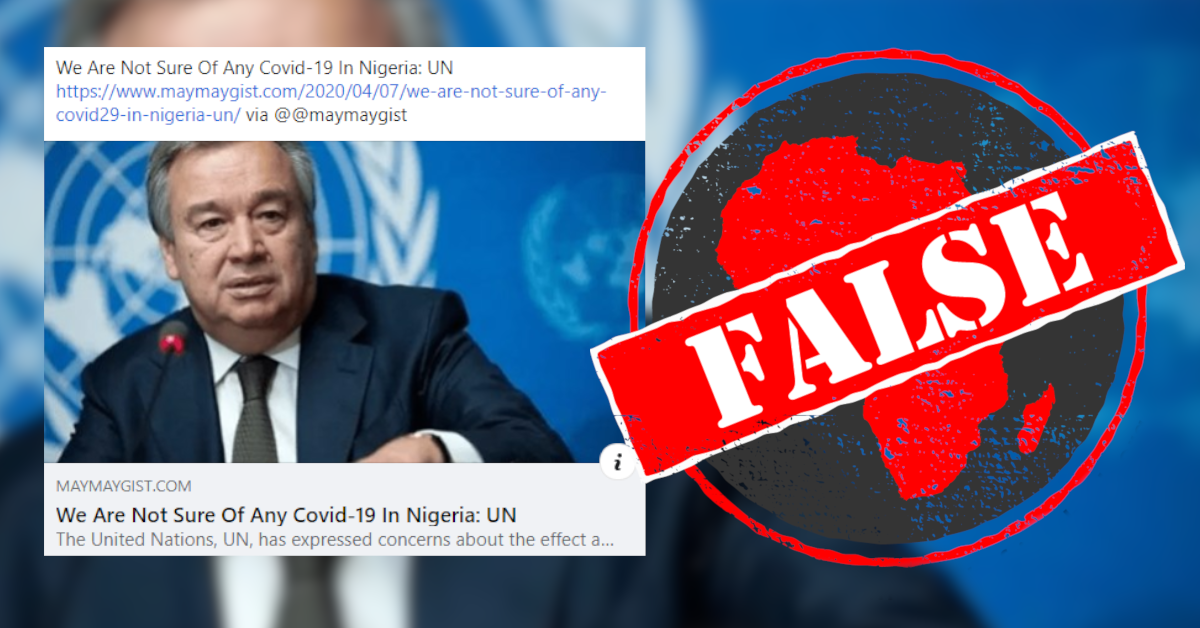A photo of three sleeping Nigerian police officers has been posted on Facebook with the claim they were magically put to sleep by a man they had come to arrest.
“I respect Ezeagu man today. These policemen came to arrest Ozoh of Ezeagu today just because he opened his shop and the man put all of them to sleep for two hours,” the post reads.
“How I wish we have somebody like him here in Abakpa Nike because the police is using coronavirus issue to make money, if you open your shop they will collect money from you. But Ozoh showed them pepper today.”
Dated 21 April 2020, the post has been shared 175 times and attracted more than 400 comments.
Ezeagu is a local government area in Enugu state, southeast Nigeria.
But the story does not match the photo.

A Google reverse image search reveals that the photo has been circulating online since at least 2013.
It appears in an August 2013 blog post that collected photos, memes and cartoons to poke fun at the Nigerian police. It was also used in an October 2105 tweet criticising the country’s police. – Allwell Okpi
“I respect Ezeagu man today. These policemen came to arrest Ozoh of Ezeagu today just because he opened his shop and the man put all of them to sleep for two hours,” the post reads.
“How I wish we have somebody like him here in Abakpa Nike because the police is using coronavirus issue to make money, if you open your shop they will collect money from you. But Ozoh showed them pepper today.”
Dated 21 April 2020, the post has been shared 175 times and attracted more than 400 comments.
Ezeagu is a local government area in Enugu state, southeast Nigeria.
But the story does not match the photo.

Photo online since 2013
A Google reverse image search reveals that the photo has been circulating online since at least 2013.
It appears in an August 2013 blog post that collected photos, memes and cartoons to poke fun at the Nigerian police. It was also used in an October 2105 tweet criticising the country’s police. – Allwell Okpi
Republish our content for free
For publishers: what to do if your post is rated false
A fact-checker has rated your Facebook or Instagram post as “false”, “altered”, “partly false” or “missing context”. This could have serious consequences. What do you do?
Click on our guide for the steps you should follow.
Publishers guideAfrica Check teams up with Facebook
Africa Check is a partner in Meta's third-party fact-checking programme to help stop the spread of false information on social media.
The content we rate as “false” will be downgraded on Facebook and Instagram. This means fewer people will see it.
You can also help identify false information on Facebook. This guide explains how.





Add new comment